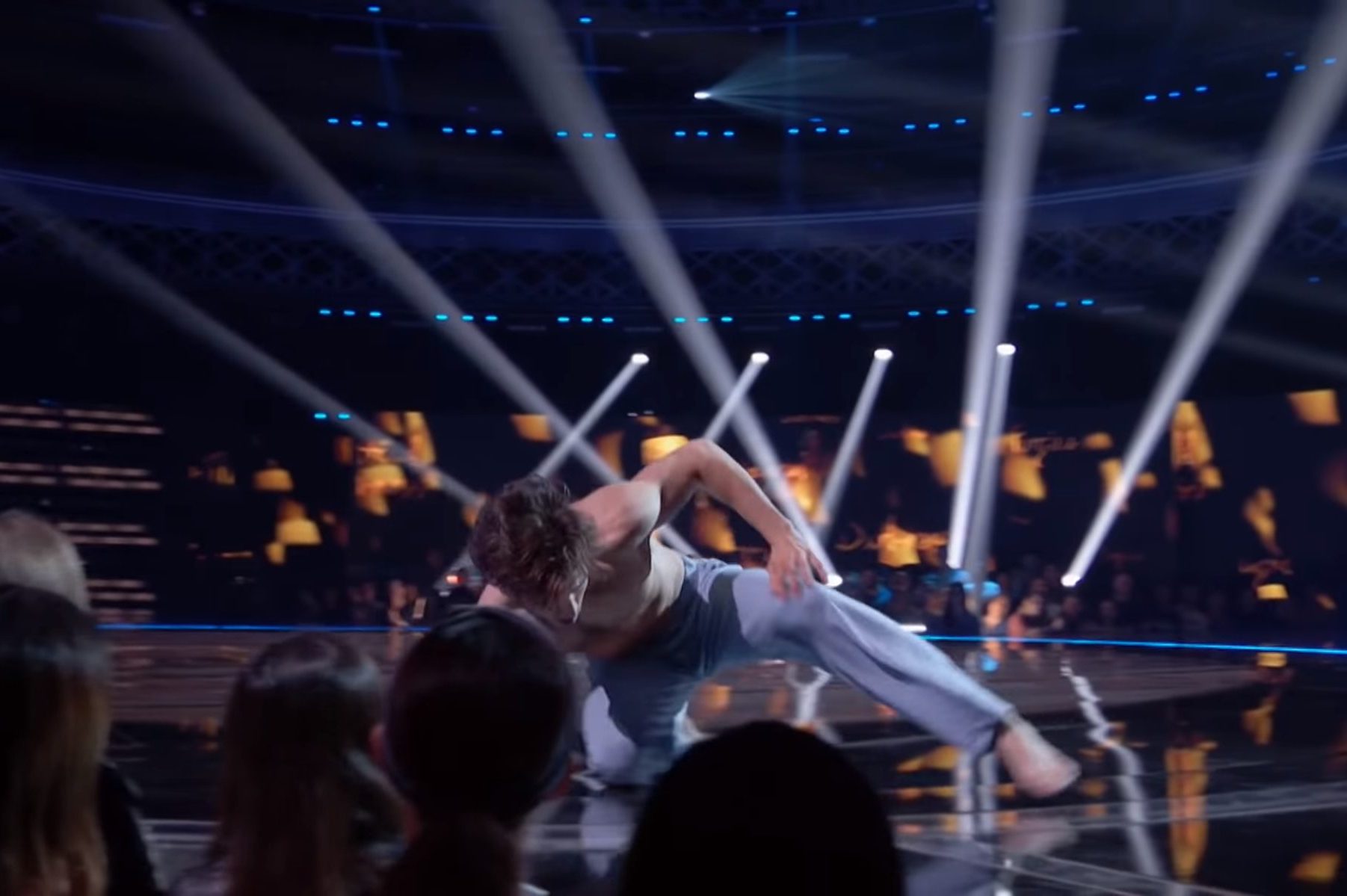“World Of Dance” is the most exciting dance show TV has ever seen. Unlike shows such as “So You Think You Can Dance” or “Dancing With The Stars,” “World of Dance” functions more like a sports tournament than a dance competition. Solos, duos and groups of dancers compete in multiple rounds, facing off against each other as they fight for the grand prize of $1 million.
“World Of Dance” emphasizes dancers’ athleticism just as much as their artistry. The competitive nature of the show requires that contestants push themselves more than ever before, resulting in performances in which dancers seem to defy the limits of the human body. However, despite all of the elements that make it an incredible dance competition show, “World Of Dance” has one glaring flaw: The judges unfairly favor hip-hop over other styles of dance.
Don’t get me wrong — many of the hip-hop dancers who compete on “World Of Dance” are absolutely phenomenal. It’s just that, time and time again, the judges demonstrate that they prefer flashy hip-hop routines over more technical styles of dance such as contemporary, jazz and ballet. The judges’ favoritism has resulted in hip-hop competitors coming out on top even when dancers in other styles clearly out-dance them.
“World Of Dance” promotes itself as a show where world-class dancers representing any and every dance style are welcome to compete. However, only hip-hop dancers have ever won throughout the three full seasons it has aired, making viewers wonder if the show is as fair as it claims to be.
How It Works
Jennifer Lopez, Derek Hough and Ne-Yo judge dance groups from all over the world who come to the U.S. to compete on the “World Of Dance” stage. The judges evaluate dance acts based on a detailed set of criteria that include the categories of performance, technique, choreography, creativity and presentation. Beginning in the semi-final round, judges give contestants numerical scores based on these criteria.
The judging criteria should mean that “World Of Dance” is as fair as it could possibly be. It functions so that dancers advance or get booted off as a result of a numerical average based on specific qualities of their performance, rather than a majority yes or no vote among three judges. However, hip-hop groups still manage to come out on top more often than other dance styles. Ultimately, the use of specific criteria does not protect against unfair judging.
Moreover, the use of criteria only points to how biased toward hip-hop the judging actually is. The numerical judging system highlights the clear inconsistencies between judges’ positive comments on non-hip-hop dance performances and their subsequent low scores.
Contemporary Dancers Get Robbed
A recent and very obvious instance of the judges robbing a contemporary dancer involves Kurtis Sprung and his performance in this season’s semi-final round. Sprung’s experience on “World Of Dance” is a classic example of the discrepancies between the judges’ reactions to a dance and the score they ultimately give.
https://www.youtube.com/watch?v=-xOMWF7RNqA
Sprung performs a gravity-defying contemporary dance during which he leaps, turns, flies across the stage and does it all while portraying an emotional narrative about his relationship with his father. The performance has all the elements of a great dance piece. Sprung manages to both show off his stunning dance technique and tell a powerful story without letting his showmanship overshadow the technical aspects of the dance, or vice versa.
In contemporary dance, it’s easy to rely on either exaggerated emotion or technical tricks to carry a piece. It’s much more difficult to blend those two elements so that they complement one another. Sprung strikes the perfect balance between performance and technique, resulting in one of the most compelling dances of the season.
The judges are clearly in awe of his performance. They have overwhelmingly positive comments for him, praising him for his artistry, technique and incredible storytelling. Derek Hough even gets choked up while making his comments due to how the performance emotionally affected him.
Only Ne-Yo provides a critique in addition to the praise he gives Sprung, saying that he wished the dance had slowed down in order to have more “picture moments.” It’s hard to figure out what he means. At some points in the piece, Sprung fully stopped moving and held a pose, meaning there were many specific instances that would look incredible if someone snapped a picture of them. J.Lo even points out that she disagrees with Ne-Yo and names some of those instances she felt were “picture moments.”
Despite their clear love of the performance, the judges gave Sprung a score that was not nearly high enough to advance him. It was also lower than the scores of two hip-hop groups, one of which made it to the finals.
Based on the judges’ praises, lack of any valid criticism and the criteria they use to score contestants, it’s impossible to understand how Sprung did not make it through to the finals. His score simply did not match how the judges clearly felt about his performance.
Sprung checked off every single one of the categories that make up the criteria and then some. He perfectly executed some of the most challenging dance steps in existence while also telling a detailed story based on his personal experiences. His performance was so powerful that it almost made a judge cry.
The hip-hop groups who scored higher were great, but they could not compare. The technical difficulty of their choreography and the storytelling capabilities of their performances did not nearly match the heart, soul and talent Sprung left on the stage.
Sprung is not the first contemporary dancer to have been denied victory despite the judges’ praise of their performance. Contemporary groups have lost to hip-hop groups in the finals of every past season. A particularly disappointing instance of this was last season, when the hip-hop group The Kings beat out the contemporary group Unity LA for the grand prize.
Unity LA consistently performed some of the most unique, inspiring and technically sound dances the show has ever seen. Like Sprung, they perfectly blended difficult dance technique and tricks with compelling storytelling. The judges absolutely loved them and were not shy about telling them that they were some of the best dancers to ever come on the show. In fact, the group’s choreographer, Tessandra Chavez, received the only choreography Emmy Award a “World Of Dance” choreographer has ever been awarded.
The Kings were a spectacular hip-hop group that the judges also loved. However, their performances always relied on fancy tricks and stunts to excite the audience and judges. They did not have the artistry, versatility or storytelling abilities that Unity LA consistently brought to the stage. Nonetheless, they took home the grand prize.
If the show were called “World Of Tricks,” then The Kings would no doubt have deserved to win. However, dance is about so much more than a performers’s ability to catapult themselves through the air. The judges’ comments and the criteria they use to give scores seem to recognize that, but the results somehow always end up favoring hip-hop groups. This phenomenon leads me to believe that the judges often give hip-hop groups higher scores than they really deserve when compared to contemporary acts.
“World Of Dance” Can And Should Be Fairer
Of course, comparing hip-hop to contemporary is a classic apples versus oranges dilemma. Hip-hop is naturally geared toward flashy, high-energy performances, while contemporary lends itself to quieter, more emotional dance storytelling. Nonetheless, if “World Of Dance” wants to be fair to all dance styles, it needs to make some changes, as the current system clearly isn’t working.
An impactful change could be adding a round that requires contestants to perform a piece that is not in their style of expertise. This would add another layer of difficulty to the competition and force contestants out of their comfort zones. “So You Think You Can Dance” makes its contestants do this. Over the years, that show has had a healthy mix of winners who specialize in all different styles, including contemporary, hip-hop, jazz and even tap. This type of a round would therefore make the show a bit fairer by forcing “World Of Dance” contestants to reveal how well they perform under the pressure of dancing in a style they are not as confident in.
It’s important to note that while contemporary groups often come second to hip-hop groups, other styles such as ballet, tap and ballroom have seen even less success on the show. Thus, this type of round could help level the playing field for all contestants by allowing dancers to show off their versatility through dancing in styles beyond the one they enter the competition performing.
By the time this article gets published, Season 4’s champion will have been crowned. I am very much hoping that if a non-hip-hop group deserves to win, it will. Unfortunately, the last three seasons do not make that result promising. I hope the show proves me wrong this year. I am looking forward to the day when “World Of Dance” judges evaluate all dance styles fairly. Only then can it truly be the best dance show on TV.















